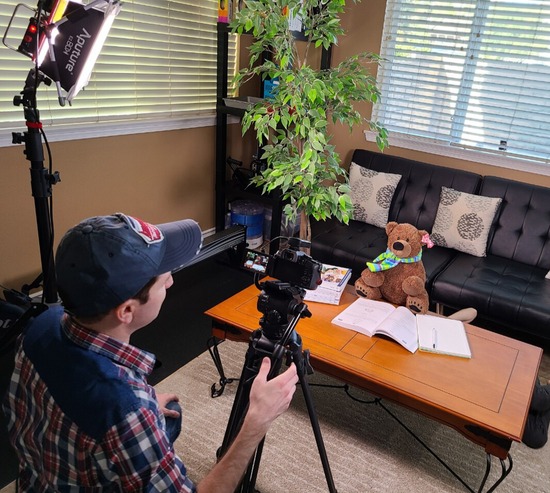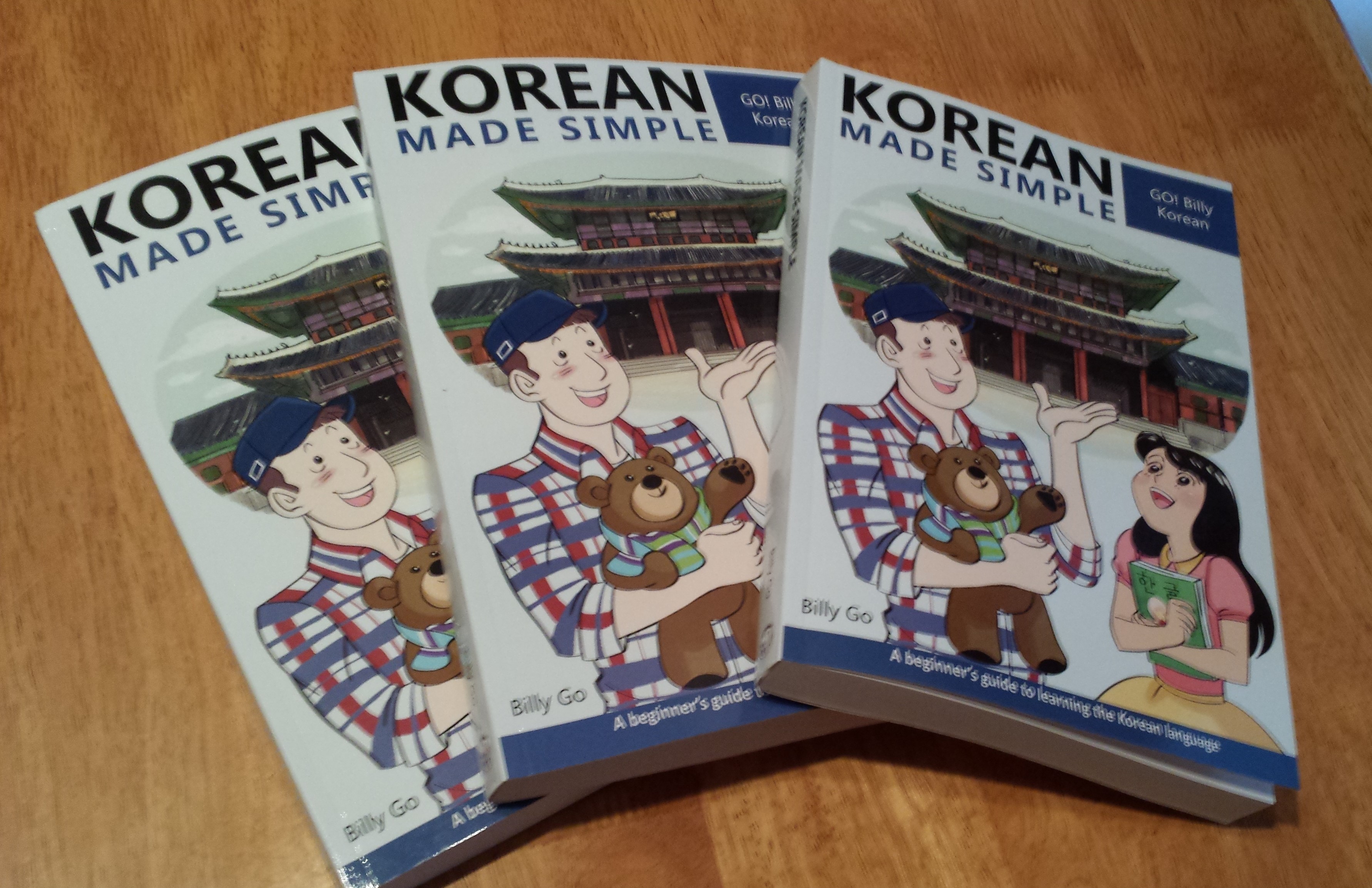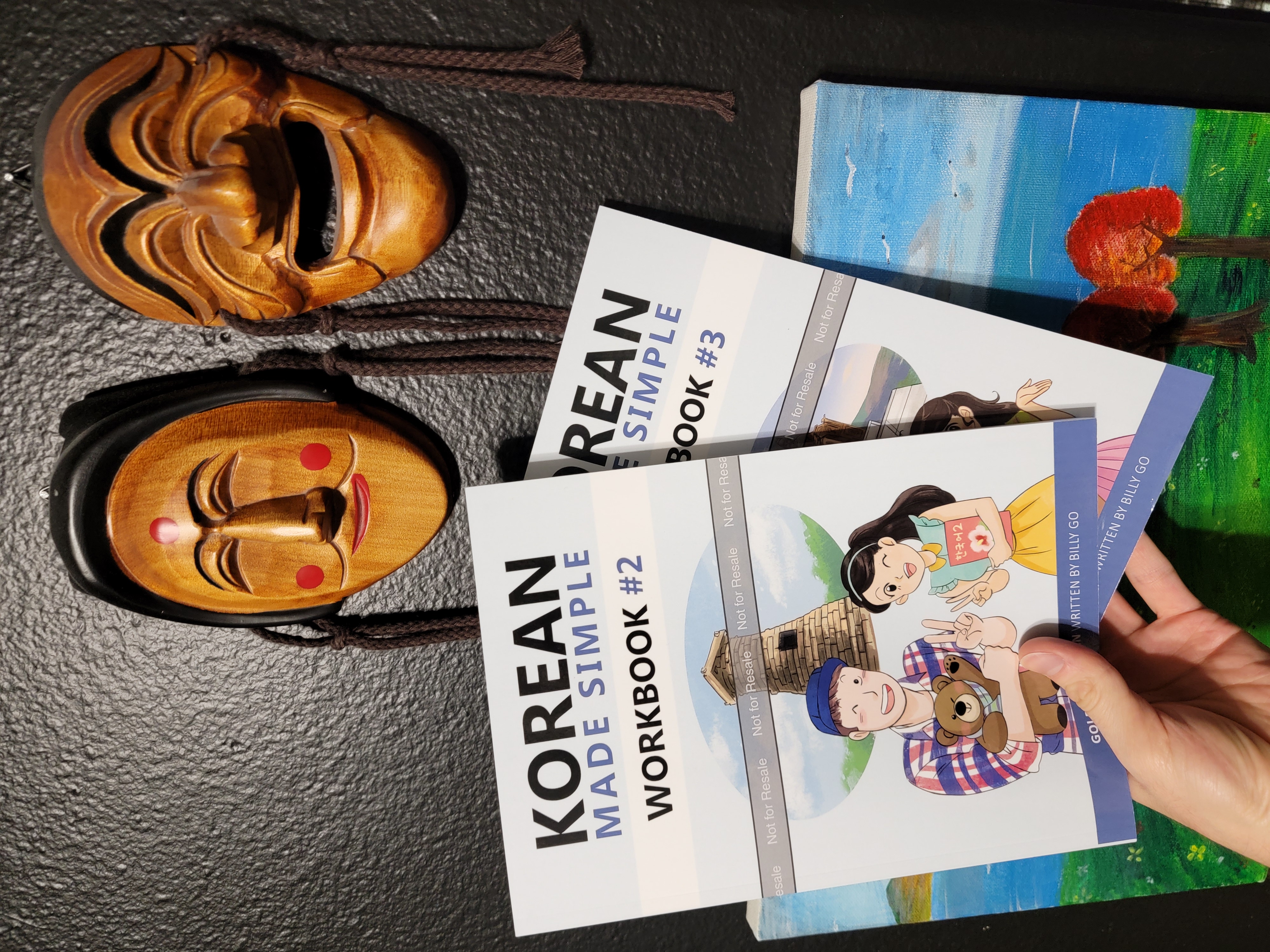The Korean Language continues to attract learners worldwide, driven by the global popularity of Korean dramas, music, and media. As the interest grows, many turn to online educators who make language learning more accessible.
Billy Go, better known as Go Billy in the Korean language learning community through his YouTube channel GoBillyKorean, is an American content creator and author. As a non-native speaker who learned Korean through years of dedicated study, he offers a unique perspective on language education. His grammar-focused lessons, engaging teaching style, and cultural insights have helped many learners around the world.
When I began my Korean language journey, I came across Billy's content on YouTube. His videos stood out to me because he teaches from a Korean learner's perspective. His book series, Korean Made Simple, was especially helpful in deepening my understanding of Korean grammar. This experience inspired me to interview him and learn more about his journey as a non-native Korean language educator.
The interview was conducted via email between May 10 and May 13. The following are the excerpts from the interview with Billy Go, in which he shares his experiences, challenges, and advice as a Korean language educator. For better organization, the interview has been divided into sections.

Introduction
- Can you briefly introduce yourself?
Billy: I'm Billy! I've been learning Korean since 2005, and teaching it on YouTube since 2012. But I'm not a native Korean speaker. I started learning Korean during college, when many of my friends were Korean, and although I've also studied other languages, I decided to stick to only Korean. After I began helping people online with their Korean studies from around 2010, I realized I enjoyed it and started my YouTube channel.
Personal Language Journey
- What first inspired you to learn Korean?
Billy: I studied Japanese before Korean, and I've always been interested in language learning. But the first time I was ever introduced to Korean was years before that, from some friends I knew in high school who taught me random Korean expressions and words. In college, I made several Korean friends and decided to actually learn some of the language; those friends were the reason I originally became interested in the language.
- What were the biggest challenges you faced while learning the language, and how did you overcome them?
Billy: Everything was hard for me because I was learning it by myself in the beginning. One of my friends tried to teach me the alphabet, Hangul, but I remember it all went over my head. Grammar was hard. Word order was hard. Pronunciation was impossible for me to get right. But I just kept going, because I'd already learned some Japanese, and Japanese was also difficult for me. So, I knew that if I could learn some Japanese, I could surely learn more Korean, and I just kept going. Eventually, I turned out to be correct. It's hard, but if you just keep going and practicing, everything is learnable and gets easier.
- As a foreigner, what cultural and linguistic barrier surprised you the most while learning Korean?
Billy: I wasn't expecting so many cultural differences. I was surprised to learn how Koreans use sarcasm differently, and I was also surprised that they don't do small talk like we do. Food culture was shocking too, because I'd never shared meals with other people before, but in Korea, it's common to share side dishes with other people. The culture was the biggest shock for me, and I'm still not “used” to every aspect of it. But I have adapted my personality to better match Korean culture while I'm in Korea.

Becoming a Korean Language Educator
- At what point did you decide to start teaching Korean to others?
Billy: It happened around 2010, when I started going on various online forums and helping people with the language, just as another user. I noticed that most people had the same questions about Korean, such as about the markers and the particles, basic verbs, politeness level, and sentence structure. And these were topics I felt comfortable with, so I wanted to help them out from an English speaker's perspective. After I did that for a while, I realized it'd be easier to make videos about common topics, so that way I could simply share a link instead of writing the same answer over and over again. This is how my YouTube channel started.
- How did your YouTube journey begin, and how has the platform helped you connect with the learners?
Billy: I picked YouTube because I'd already been using it since around 2007, and it was the largest place for sharing videos at the time. There was no monetization, so all of my videos were made for free, and I dreamed of someday making money through teaching Korean. For several years, I remember making something like $20 a month from YouTube at most from some of my videos, and it was just enough to pay for my website server expenses, but nothing else. I like that it's a large platform where a lot of people search for videos, and I like being able to reach anyone in the world on one website. I also connect with my fans on Patreon, which has been useful for sharing downloadable materials with my fans (such as my cheat sheets, vocabulary deck, and notebooks).
- What sets your teaching style apart from traditional Korean language instruction?
Billy: I don't have any training as a teacher, and I don't use a textbook to teach - I just teach in a way that makes sense to me as a non-native Korean speaker. I think my perspective as a Korean learner is what makes me unique, because I can teach things in a way that most native speakers wouldn't try, since I had to learn them myself. I'm able to teach things in a way that other learners can easily comprehend.

Korean Made Simple Book Series
- What inspired you to write the Korean Made Simple Books?
Billy: After I started my YouTube channel, I realized that there still weren't many resources made for Korean learners, and fewer from Korean learner's perspective. I wanted to have my own resources that I could recommend to people looking for a way to start learning Korean, and that were taught in the same way that I made my YouTube videos. That started the series “ Korean Made Simple ” as well as all of my books.
- How do your books support learners differently compared to your videos?
Billy: They both teach from a Korean learner's perspective, but each book tackles a different part of the language. My “Korean Made Simple ” books are made for building a stronger foundation of grammar, vocabulary, expressions, and even cultural knowledge. My “Korean Reading Made Simple” books are focused on different types of readings, from short stories to folktales, social media posts, and even comics. And my “Korean Conversation Made Simple” is focused on real, natural Korean conversations. But the style of teaching is the same no matter the format.
- Do you have any memorable feedback from readers who used your books?
Billy: I often receive messages from learners who started off learning Korean by using my materials, and have since moved to Korea for work, or even met a Korean partner. I like hearing from my “former students” who are able to actually use Korean in real situations, and it helps motivate me to keep going.

Cultural and Global Impact
- In your view, why is Korean becoming such a popular language globally?
Billy: It really started becoming popular with the rise of K-pop, and I credit most of its recent popularity to that. There were always people studying Korean from even back when I started learning, but for different reasons. Most people who started learning when I started were only learning it because they were interested in the culture, or because they had Korean friends, or a Korean partner. And nowadays, many people still learn for those reasons. But Korean culture, food, and music becoming popular has made “Korean” a well-known language, and it's much easier to access content than in the past. Nowadays, anyone can go online and find Korean shows, music, and even make friends in Korea. It's becoming much “cooler” to learn Korean nowadays.
- How do you try to include Korean culture in your lessons?
Billy: I always mention culture whenever I can, because I think it's a big part of the language. It's not really possible to learn the language well without also understanding the culture. For example, if I'm teaching a lesson about a grammar form that's only used in polite speech, I will also mention the cultural nuance of using that form, as well as alternatives that could be used in casual speech. If I'm teaching about expressions related to food, I'll talk about why those expressions are important or what they mean to Koreans. "Culture and Language go together."
Reflections and Advice
- What has been the most rewarding moment in your journey as a Korean Language educator?
Billy: The most rewarding thing is just hearing from my students sharing their progress. I like hearing about how speaking Korean has been useful to them. Last year, I got an email from someone who is a paragliding instructor in another country, and who frequently uses Korean for his job. I can't imagine how surprised those Koreans must be to travel to a foreign country, and to have your paragliding instructor be able to explain things to you in Korean. Those sorts of stories really make everything worth it.
- What advice would you give to beginners who are just starting to learn Korean?
Billy: Just to start. You don't have to make a huge time commitment in the beginning. Just start, and have a reason why you're starting. And remember that reason, even when things get difficult, and even when you reach a lesson that's less interesting to you. Eventually, you'll get to where you want to be, and it'll all be worth it. Knowing Korean unlocks so many doors.
My conversation with Billy Go offered more than just insights into learning Korean - it revealed the passion and dedication behind his mission to make the language accessible and enjoyable for learners worldwide. His journey reminds us that language learning is not just memorizing grammar and vocabulary, but about building connections, embracing culture, and staying consistent. For those inspired to start and continue their Korean language journey, Billy's work is both a guide and motivation. As he says, just start; you don't have to make a huge time commitment at the beginning.

How about this article?
- Like3
- Support0
- Amazing0
- Sad0
- Curious0
- Insightful1


